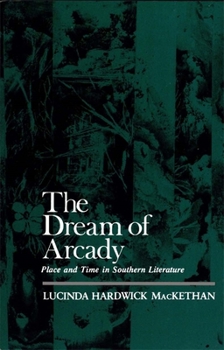The Dream of Arcady: Place and Time in Southern Literature
Select Format
Select Condition 
Book Overview
This is a well-organized, gracefully written account of a significant aspect of Southern fiction, and it contains information and incisive commentary that one can find nowhere else. --Thomas Daniel Young
Many southern writers imagined the South as a qualified dream of Arcady. They retained the glow of the golden land as a device to expose or rebuke, to confront or escape the complexities of the actual times in which they lived.
The Dream of Arcady examines the work of post-Civil War southern writers who criticize the myth of the South as pastoral paradise. Sooner or later in all their idealized worlds, the idyllic vision fades in an inescapable moment of awakening. This moment, which is central to MacKethan's study, produces an atmosphere pastoral in mood and implications.
Her perspective analysis juxtaposes the responses of Sidney Lanier, Joel Chandler Harris, and Thomas Nelson Page, who contributed to yet hope to transcend sectionalism, with the ambivalent views of black writers Charles Chesnutt and Jean Toomer. Considering the writings of the Agrarians, William Faulkner, and Eudora Welty, MacKethan then concludes her study by questioning whether the Arcadian dream still serves the artist of our era as a frame for artistic and ideological purposes.





